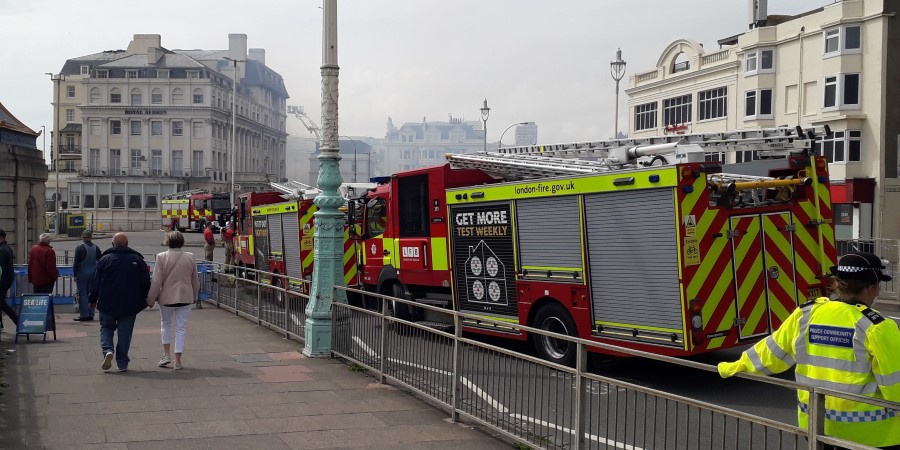On 12 June 2015 I was sat at my desk (yes, my own desk!) in the news room of The Argus – the daily regional newspaper covering the county of Sussex.
I was monitoring the police and fire logs for breaking news and at about 5.30pm two separate incidents appeared on the fire service log. Each just said “FDR1” – a fire that is a danger or risk to life. Both were in Brighton & Hove.
There had already been two FDR1s in the city that day. As the old adage goes, sometimes you wait ages for an FDR1 and then four turn up at once.
I found out Hove Engineerium was on fire at the same time as a shop in the North Laine area of Brighton. I was sent by my news desk to the Engineerium, where five crews from the fire service were already on the scene.
Afterwards, I learnt there were seven fire engines at the other fire. There were only six fire engines for the whole city, so naturally I wondered where the others had come from and, since they were all in Brighton, what would happen if the places they’d come from also had an FDR1?

I wasn’t one for press office spin, but what the fire service said actually made perfect sense.
Imagine a map of your local area laid before you, and imagine it is covered by a large net. Imagine each knot in the net is a resource that you need. Imagine grabbing the net with your hand and scrunching it up. As you gather the net, other knots will move closer to what you’ve scrunched up.
Now imagine the net covers the south-east of England. You get the idea. We saw this play out in July 2023, when part of the Royal Albion Hotel in Brighton went up in smoke, drawing in fire crews from as far away as London (pictured above).
Unknotting the net
If you’re still reading, you’re probably wondering what this has to do with the governance of a university website.
At the university, about 500 people currently edit the website, with more accessing forms and uploading news or events. Each main department or area has several people editing pages.
The (logical) argument for each team having several editors is that they need a back-up for the main editor, and a back-up for the back-up, etc.
With turnover, training back-ups for hundreds of people and keeping that knowledge up-to-date, it’s a never-ending job, with no tangible benefit for users.
Thankfully, the vast majority of our digital content is not a danger or risk to life, so it doesn’t need to be this way.
It’s entirely possible that a more specialist group of editors could be part of a larger net that gets pulled, as needed, on to priority work. Why not have fewer editors but with more expert knowledge of the subject area and the right level of skills? If they’re busy, they can draw on the network for help. If they have capacity, they can get pulled on to other projects where they can do their best work. And if they’re sick or on holiday, the wider network covers for them.
We’ve been thinking about the idea that this kind of network could mean the whole organisation is resourced efficiently, yet has access to the right skills to produce great content. We have a long way to go and there is more to do to prove that, actually, by taking this approach the University won’t burn down in an emergency.
- If you enjoyed this post… you might be interested in a companion post about strategic resourcing in relation to feminine ethics and masculine justice perspectives.


Leave a Reply